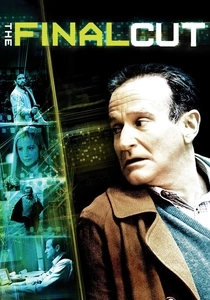Memory is a fascinating aspect of human existence, and what happens when it's tampered with or erased entirely? This curated list delves into the realm of science fiction where memory manipulation becomes a central plot device. These films not only entertain but also provoke thought about identity, privacy, and the essence of being human. From dystopian futures to personal dramas, each film explores the consequences and ethical dilemmas of memory erasure, making this collection a must-watch for anyone intrigued by the intersection of technology and the human psyche.

Total Recall (1990)
Description: Douglas Quaid undergoes a memory implant procedure to live out a fantasy as a secret agent, only to find his memories might be real. The film explores the boundaries between reality and artificial memories.
Fact: The film was based on Philip K. Dick's short story "We Can Remember It for You Wholesale," and its special effects were groundbreaking for the time.
 Watch Now
Watch Now 
The Long Kiss Goodnight (1996)
Description: A schoolteacher with amnesia hires a private detective to uncover her past, only to discover she was a government assassin. The film explores the theme of memory loss and the rediscovery of one's identity.
Fact: The film was originally intended to be a much darker and more violent thriller.
 Watch Now
Watch Now 
Dark City (1998)
Description: In this neo-noir sci-fi, a man wakes up with no memory and discovers that his city is controlled by beings who can alter reality and memories at will, questioning what is real and what is constructed.
Fact: The film's visual style was heavily influenced by German Expressionism, particularly Fritz Lang's "Metropolis."
 Watch Now
Watch Now 
Memento (2000)
Description: Leonard Shelby, suffering from short-term memory loss, uses notes and tattoos to hunt for his wife's murderer. The film's unique narrative structure mimics Leonard's memory condition, making it a profound exploration of memory and identity.
Fact: The film was shot in reverse chronological order to reflect the protagonist's memory loss.
 Watch Now
Watch Now 
The Butterfly Effect (2004)
Description: Evan Treborn discovers he can travel back in time to his childhood memories, altering events to change his present. However, each change has unforeseen consequences, exploring the idea of memory manipulation and its ripple effects.
Fact: The film's title refers to the butterfly effect in chaos theory, where small changes can lead to significant outcomes.
 Watch Now
Watch Now 
Eternal Sunshine of the Spotless Mind (2004)
Description: This film explores the concept of erasing memories of a past relationship, delving into the emotional and ethical implications of such a procedure. It's a poignant look at love, loss, and the desire to forget.
Fact: The film was inspired by a short story by Charlie Kaufman, and it won the Academy Award for Best Original Screenplay.
 Watch Now
Watch Now 
Paycheck (2003)
Description: Michael Jennings, an engineer, undergoes memory erasure after completing high-security projects. When he wakes up, he finds his payment replaced with seemingly random items, leading him on a quest to uncover his past.
Fact: The film is based on a Philip K. Dick short story, known for his explorations of identity and reality.
 Watch Now
Watch Now 
The Final Cut (2004)
Description: In a world where everyone has a brain implant that records their memories, Alan Hakman edits these memories into a "rememory" for funerals. The film examines the ethics of memory manipulation and privacy.
Fact: The film features Robin Williams in a rare dramatic role, showcasing his range as an actor.
 Watch Now
Watch Now 
Strange Days (1995)
Description: Set in a near-future Los Angeles, this film involves a black market for recorded memories, where people can experience others' lives. It raises questions about voyeurism, consent, and the manipulation of personal experiences.
Fact: The film was directed by Kathryn Bigelow, who later won an Oscar for "The Hurt Locker."
 30 Days Free
30 Days Free 
The Jacket (2005)
Description: Jack Starks, a Gulf War veteran, is subjected to experimental treatments that send him into the future, where he must piece together his past to change his future. It's a mind-bending journey through time and memory.
Fact: Adrien Brody lost significant weight for his role to portray the physical and mental toll on his character.
 30 Days Free
30 Days Free 








